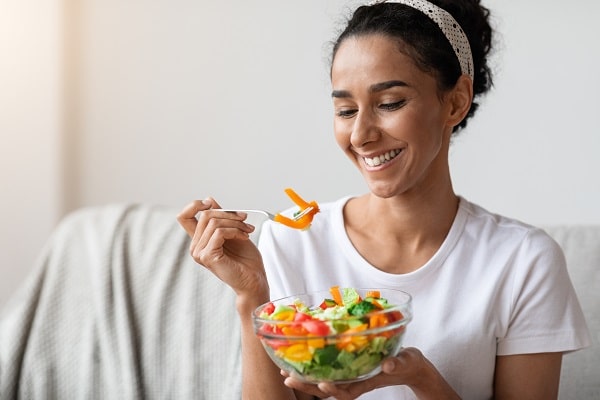There are a lot of myths and misconceptions when it comes to health and wellness. People tend to believe things that aren’t true or only focus on one aspect of health without looking at the big picture. In this blog post, we will debunk some of the most common health myths circulating for years. Stay informed and learn the truth about your health!
Contents
Cracking Your Fingers Causes Arthritis

Cracking your fingers in a quiet library is unlikely to make friends. However, the practice itself will not cause you to develop arthritis — at least not according to clinical research dating back nearly 30 years. Arthritis occurs when the cartilage within the joint breaks down and allows the bones to rub together, which causes pain and disability. Encased are the finger joints in a synovial membrane that contains synovial fluid, which helps to lubricate and prevent them from grinding against one another.
When you crack your knuckles, you’re separating your joints. An air bubble forms in the fluid due to this stretch, which subsequently bursts, producing that distinctive popping sound. Although there is no evidence of a link between the habit and arthritis, persistent cracking may wear down your synovial membrane, making it easier for your joints to fracture. It can also cause hand swelling and numbness in your fingers.
Going Out With Wet Hair Gets You Sick

You’ve just washed clean, and you’re now wet and chilly with your head covered in cold, damp hair — you’ve never been more exposed to airborne germs and viruses before. Going outside with wet hair can get you sick is a dangerously sound argument. Leaving the house after a shower, on the other hand, turns out not to make you ill unless you’re already sick. Researchers tested the idea that chilling your body improves your chance of catching the common cold virus, also known as acute viral nasopharyngitis, in 2005.
They discovered that no, it does not. However, if the virus is already present in your system, it might induce symptoms. If you’re concerned about being sick but have a crucial meeting the next day, consider blow-drying your hair before leaving the house.
Toilet Seats Can Transmit STDS

The worst bathrooms at an unhappily placed gas station might be your worst nightmares, but they’re extremely unlikely (though not impossible) to spread sexually transmitted infections (STD). Viruses, bacteria, and parasites can all cause STDs. However, only parasitic infections like crabs (pubic lice) or trichomoniasis have a chance of being passed on by sitting on a filthy toilet seat. And even then, the probability is virtually nil. Because contact between the toilet seat and your genital region is required while the parasite is still on it and alive — and toilet seats don’t offer ideal living circumstances for parasites.
All Fat Is Bad

Visit the market and tally how many low-fat or nonfat items you encounter. You’ll most likely run out of steam. While we live in a society that condemns any food products with even a trace of fat, the reality is that your body requires fat. Your body needs some dietary fat to absorb specific fat-soluble vitamins. Dietary fat, including essential fatty acids and omega-3 fatty acids, is crucial to energy production, cushioning, warmth, and other functions.
Nuts and vegetable oils are high in monounsaturated fat, which can lower your blood cholesterol levels and decrease your risk of heart disease. Omega-3 fatty acids, for example, are present in fish like salmon and trout. However, the Women’s Health Initiative, eight-year research that concluded in 2001 and included almost 50,000 women, revealed that those who adhered to low-fat diets showed no significant change in their risk of heart disease, breast cancer, or colorectal cancer.
According to 2007 research, low-fat diets increased the risk of infertility in women, and consuming more high-fat dairy products decreased their chances of anovulatory infertility (not ovulating). That does not imply that you should follow a high-fat diet, but it does suggest that you should be more selective. According to the researchers who conducted the original research, it’s not the fat percentage but rather the sort of fat that matters. Avoid trans fats and limit saturated fats; not all fats are bad.
Try To Avoid Eating Before Bedtime

The thinking behind this one is that eating before you sleep gives your body more time to store fat. And while it’s true that your metabolism slows when you’re sleeping, that doesn’t imply you should cut off all food and beverage consumption a few hours before bedtime. A small study published in 2012 found that people who ate a high-protein snack before going to bed woke up feeling more satisfied and less likely to indulge later.
An earlier study from 2009 found that late-night eaters didn’t gain weight — even though they consumed more calories than their early bird counterparts. The researchers speculated that the later eaters may have been more physically active and had an easier time sticking to their diets because they were less likely to experience hunger pangs throughout the day.
So if you’re up late working or studying and feel peckish, don’t feel guilty about reaching for a snack. Just be sure not to choose something with empty calories, like candy or chips. A piece of fruit, a hard-boiled egg, or a handful of nuts would be a better option.
You Need to Drink Eight Glasses Of Water A Day

This one is probably the most persistent myth on the list. And while it’s true that your body is mostly water and that you need to replenish your fluids throughout the day, eight glasses is probably more than you need. The Institute of Medicine recommends that women consume 91 ounces (about 11. cups) of fluid per day, while men should have 125 ounces (just over 15 cups). But keep in mind that this includes all liquids — not just water. Anything from tea to soup to juice counts. And if you’re exercising or spending time in a hot environment, you’ll need even more.
Conclusion
In conclusion, many of these health myths were able to be debunked. It is essential to be selective with the information you choose to believe and always consult with a healthcare professional before making any significant changes to your diet or lifestyle. Thanks for reading!


